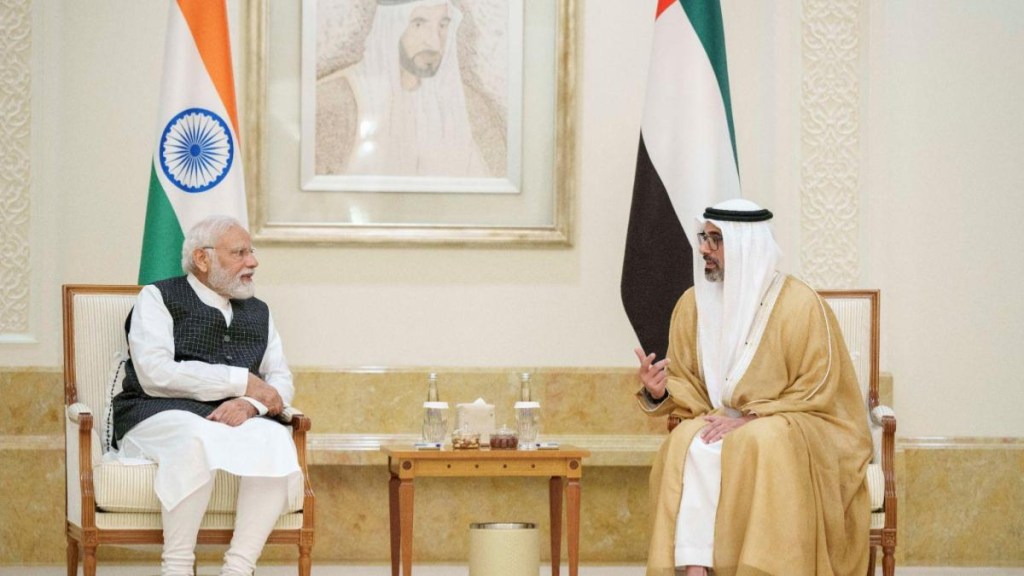The India-UAE Comprehensive Economic Partnership Agreement (CEPA) has opened a new and transformative chapter in the bilateral trade between the two nations. The agreement, a testimony to the potential of international collaborations, has not only catalyzed industrial output but also orchestrated a significant surge in capital flows. Dr Thani Ahmed Al Zeyoudi, the UAE Minister of State for Foreign Trade, expressed confidence in the multifaceted advantages that the CEPA has ushered in, while addressing a gathering at the ‘India-UAE Business Forum’, organized by FICCI.
With the remarkable commencement of the CEPA agreement, a wave of joint ventures and innovations has been set into motion. Dr Thani’s assertion that the CEPA has effectively instigated a remarkable rise in non-oil bilateral trade, culminating in a staggering total value of $50.5 billion over the course of the inaugural 12 months since its implementation, underscores the substantial impact this agreement has wielded.
Beyond its immediate economic implications, the CEPA serves as a testament to the enduring partnership between India and the UAE. In his address the visiting minister highlighted the need for sustained collaboration between these two nations to leverage emerging markets that hold tremendous potential. Specifically, he highlighted the opportunities presented by the Commonwealth of Independent States (CIS), Africa, and East European countries. This outreach and the intention to embrace these markets draw attention to the UAE’s proactive approach to fostering enduring partnerships and alliances that extend beyond traditional trade ties.
He also talked about the services sector, illustrating how the growing middle-class income group is crucial in driving both trade and overall economic growth. This segment’s rising prosperity is positioned as an engine propelling forward the shared prosperity of both nations. The UAE Minister’s remarks paint a vivid picture of the intertwined destinies of India and the UAE, a partnership where growth, social, cultural, and economic ties have been intricately woven over time.
Subhrakant Panda, President of FICCI, commended the India-UAE CEPA agreement for its embodiment of mutual cooperation and beneficial collaboration. The agreement, effective since May 1, 2022, has ushered in a renewed era of economic interaction, one that is poised to be advantageous for both nations. Panda highlighted the bilateral nature of the benefits, as the CEPA is projected to substantially boost UAE exports to India while concurrently positioning the UAE as a pivotal gateway for India’s exports to West Asia and North Africa.
Panda’s forward-looking stance didn’t just dwell on the present achievements but rather pivoted towards the evolving landscape of digital transformation and the ascendant culture of innovation in startups. His words underscored the commitment shared by India and the UAE to fostering entrepreneurial spirit and promoting innovation. He also stressed the necessity of addressing non-tariff barriers and ensuring compliance to fully harness the shared potential that the CEPA agreement strives to unlock.
The impact of the India-UAE CEPA was further elucidated by Shailesh K Pathak, Secretary General of FICCI, who emphasised how the agreement stands as a pivotal landmark, effectively reducing tariffs and bestowing 90 percent of Indian exports with duty-free access. This change augments the prospects of businesses across sectors, invigorating growth and ensuring deeper ties between the two nations.
As a testament to the depth of this partnership, Dr Thani’s presence was accompanied by a delegation of 60 members. This high-level interaction facilitated conversations with various distinguished figures who contributed valuable insights. Among these perspectives, the past Presidents of FICCI, Ms. Naina Lal Kidwai and Harsh Pati Singhania, as well as industry leaders such as Raja Mohammed AlMazrouei of Etihad Credit Insurance and Jamal Saif Al Shamsi of UAE International Investors Council, shared their viewpoints on the vast trade and investment prospects that span across both nations.

